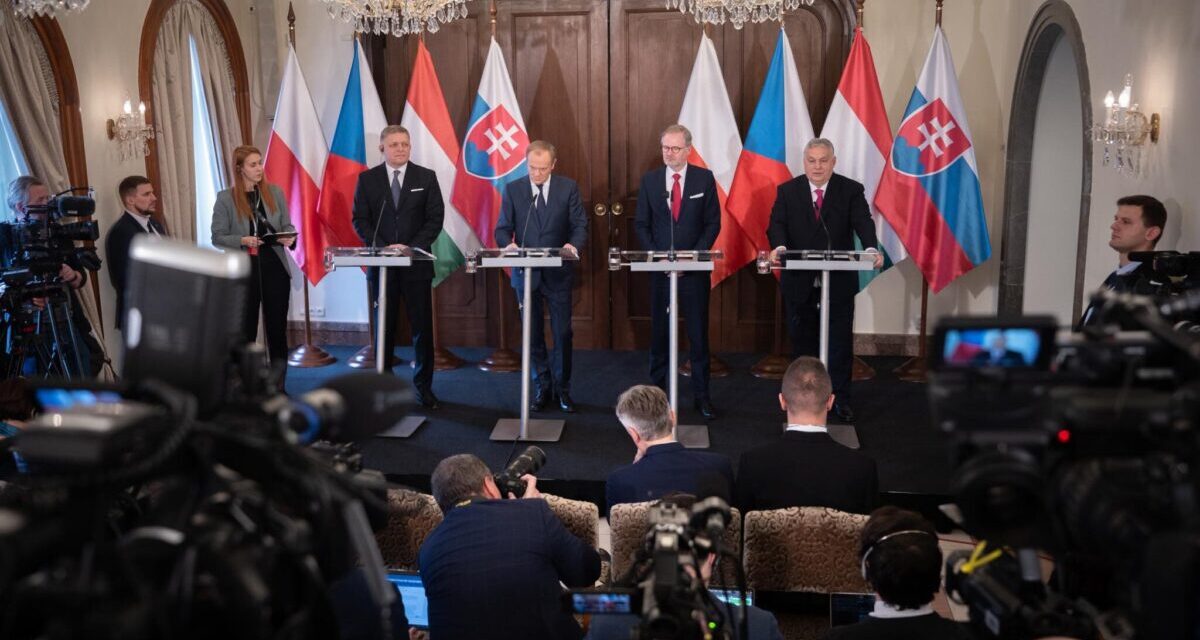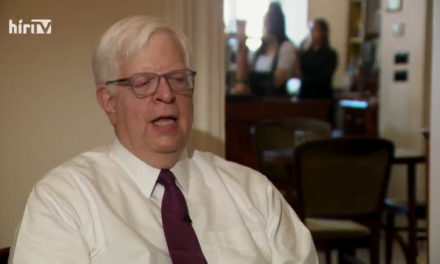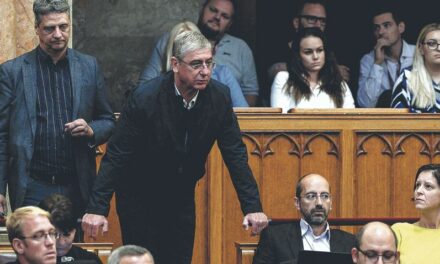Donald Tusk has already understood the lesson: whoever is a member of NATO and the EU must support Ukraine (why?), because whoever does not do this, excludes himself from the community. Written by Zsolt Ungváry.
Already in the Middle Ages, efforts were made to reap the benefits of trade to Western Europe beyond Lajta. The city of Vienna's right to suspend goods forced passing merchants to offer their goods for purchase, meaning that the local merchants could take them on to the well-paying markets.
Róbert Károly, the king of Hungary, in whose veins flowed not only the transcendent blood of the Turul family, but also plenty of Habsburg and Anjou, thought that he would team up with the other two rulers of the region in order to mark new routes.
So he reconciled the warring Polish and Czech kings and invited them to Visegrád in 1335, where one of the largest diplomatic agreements of the time and the region was concluded, and peace, prosperity and wealth greeted us, at least temporarily, as a result of the unified action of the Central European monarchies. to the countryside.
Later on, the three countries had many common affairs, often under the same crown prince, but when the great powers attacked in concert - and the unity was broken - it had bitter consequences.
For us, the Ottoman conquest, for the Czechs the Battle of White Mountain, for the Poles, following their own internal crisis, the Prussian-Russian-Austrian partition meant the end for a long time.
(True, unlike the other two, Hungary's statehood never ceased - well, for just ten years after 1849. No matter how great losses we suffered and sometimes had rather limited independence, there was always an entity called the Kingdom of Hungary.)
The Czechs and the Poles relatively pulled together in the twentieth century (it wasn't exactly our luckiest century), but if a great power growled at them, they suddenly found themselves divided and occupied; the Czechs first by the Germans, then the Soviets, the Poles first by the Germans and the Soviets together, then by the Soviets alone.
And despite the Hungarian-Polish solidarity of 1941 or 1956, the "Divide and rule!" Rome (sorry, Berlin, Moscow or nowadays Brussels) has always prevented the alliance from becoming too strong, using its principle.
In 1991, it was Hungary again that tried to put an intermediate Europe into position, and our allies, intoxicated by the sounds of sirens (or simply cowards), this time also hurried to betray the idea of a third road maneuvering between West and East.
War is raging along the Donets again, and the question is again: who will send their troops against Moscow more enthusiastically, faster, and in larger numbers.
And it's cool that the West wants to stop the Russians so much, but damn, why didn't they do that in '45? Or at least in '56?
And commitment to territorial integrity and the inviolability of borders is nice, but why didn't this exist in 1920?
It is very difficult to identify with the community that somehow always wants to assert its own interests by violating ours, and we should even put on a good image for that.
There is no appeal, the big ones have pronounced the verdict, we can only nod our heads.
Tusk has already understood the lesson: whoever is a member of NATO and the EU must support Ukraine (why?), because whoever does not do so, excludes himself from the community.
Well, it was for these words that Brussels rejoiced so much during the victory of their Donald.
And in possession of the current right to freeze goods, the Westerners are working to prevent this alliance from lasting.
The words that discuss the termination of the V4 are already being put into the mouths of the Czech and Polish prime ministers, because Ursula von der Leyen said that there is one people, one empire and one leader.
This time though, let's call the people European, the empire the Union, and the leader the committee president.
Our politicians, who are well-kept with the dollars that have been rolled into their pockets, and the media that supports their interests with who-knows-what in their pockets, as befits good traitors, is already overjoyed that he can write about the isolation and humiliation of the Hungarian Prime Minister (that is, Hungary) by introducing the signs held up by the local Ákos Hadházy as polite hosts, which accuse Orbán of practicing the most ancient female craft (this is about as real as pedophile in our country),
And Fico is asked on a board in a very cultured tone, "what is he doing in Putin's ass" (sorry, U.Zs.), while they are in the bottom half of the EU with no alternative.
The Hungarian Prime Minister replied that a nation that does not accept its opinion, even at the cost of being left alone, is a coward.
We know this attitude, it didn't always bring success in the short term, but we've only managed to do it for one thousand and one hundred years.
Fiala (he is the Czech prime minister; is there anyone in the world who doesn't know this name?) seems to suggest that the current peak could be the last in the history of the V4.
So maybe the alliance can faint for another 656 years, but we will wait; we usually think on this scale.
The question is, for example, what state the 248-year-old USA or the currently 31-year-old EU will be in then.
Or to mention another historical parallel: the throne of Kázmér, who appeared at the royal meeting in Visegrád and was later called "Nagy", was inherited by Róbert Károly's child, Lajos, who was later called "Nagy", in the absence of a son.
Because the Hungarian king had a son...
Cover image: The leaders of the V4 countries hold a press conference
Source: Facebook/Viktor Orbán












